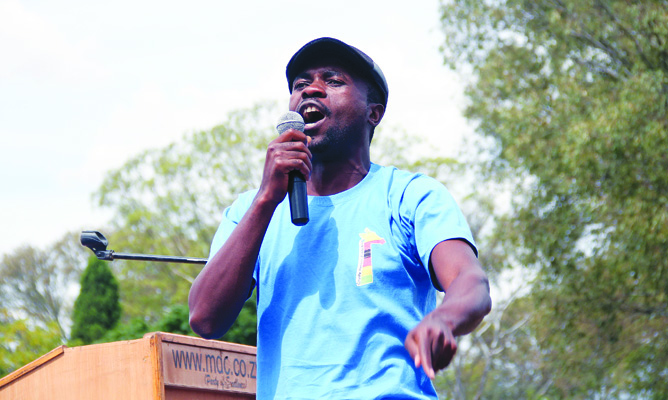
HUMAN rights groups yesterday warned that the country’s human rights image will continue to be tarnished in 2016 if government fails to ratify the United Nations Convention against Torture and Other Cruel, Inhuman or Degrading Treatment or Punishment.
by VENERANDA LANGA
The groups told NewsDay in interviews that the country should ratify the convention before the 2016 United Nations Universal Periodic Review of Human Rights in September.
Zimbabwe Human Rights NGO Forum director Llyod Kuveya said government should not drag its feet and must take a positive step to ratify the convention that requires signatory states to protect human rights.
“The excuse for not ratifying the Convention against Torture is that the Constitution already provides that protection, but there is no law to protect victims of torture or to criminalise it, and there is nowhere to go in the form of courts that can look at issues of torture,” Kuveya said.
“Torture is an international crime, and in Zimbabwe it is normally perpetrated by State security agents. It is important for prison officers, Central Intelligence Organisation officers, the police and army to be educated that torture is wrong.”
Kuveya said government could be hesitating in ratifying the convention which came into force in 1987, fearing that some officials might be dragged before international courts for prosecution on crimes of torture. He said government feels there were too many bodies to report to at UN level.
“However, the convention only talks about the protection of victims and education of State security agents, and there is nothing about prosecution,” he said.
- Chamisa under fire over US$120K donation
- Mavhunga puts DeMbare into Chibuku quarterfinals
- Pension funds bet on Cabora Bassa oilfields
- Councils defy govt fire tender directive
Keep Reading
ZimRights chairperson Passmore Nyakureba said failure to sign the convention would likely overshadow all the positive steps that the country had undertaken since 2011 to clean up its tarnished human rights record. Some of the positive steps include crafting the new Constitution.
“Now is the period which has seen the use of torture and forced disappearance against citizens by State actors. Examples of breach of human rights include the Chingwizi camp assaults by armed security personnel, the State-sponsored violence in the Hurungwe West by-elections, the assault on human rights lawyer Kennedy Masiye, the recent violent crushing of protesting teachers, and the disappearance of Itai Dzamara allegedly at the hands of State security agents,” Nyakureba said.

He said such breaches might result in Justice minister Emmerson Mnangagwa finding it difficult to present Zimbabwe’s case before participants during the September review meeting.
Nyakureba said government should publicise human rights reports and come out clean on issues of the police giving reports on the disappearance of Dzamara last March.
Already 12 countries from Sadc have ratified the convention, while Angola, Tanzania and Zimbabwe were the only ones yet to do that.











